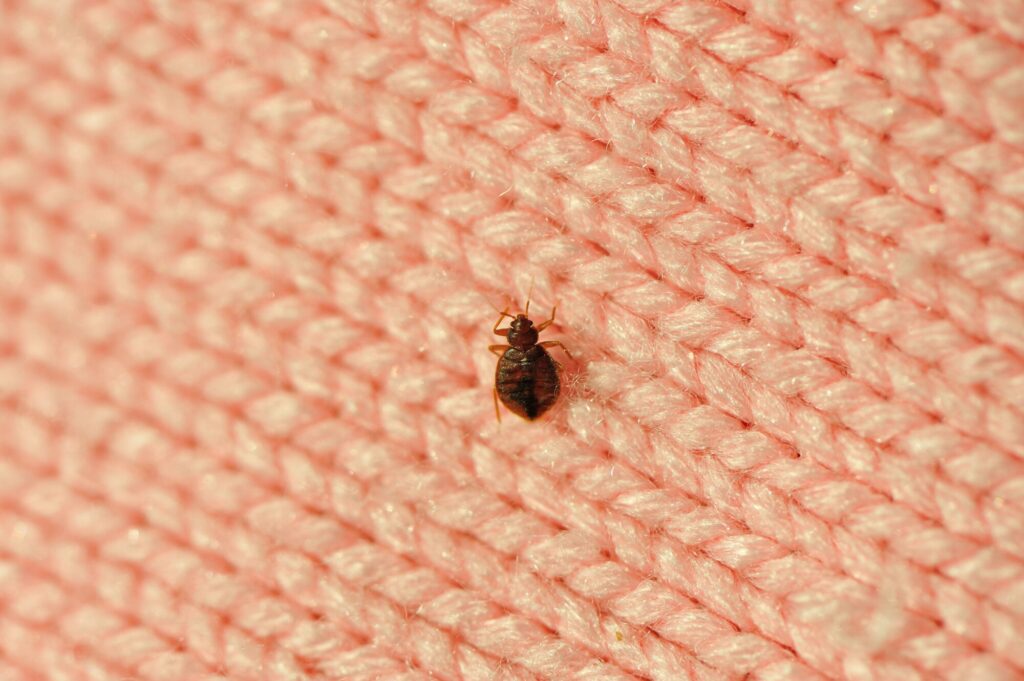Don’t Let The Bed Bugs Bite
- Published: 3rd Nov 23
- Category: News
These cunning little critters can hide in seams of clothing or in suitcases and bags. They can even jump from one person to the next. A female bed bug can lay up to 500 eggs in their lifetime taking around 10 – 15 days to then hatch. So, you can see how quickly it can become a problem.
Bed bugs are notorious for their ability to cause discomfort, anxiety, and even health problems for those affected. When a bed bug infestation occurs in a rental property, the question of responsibility for treatment and extermination often arises. Is it the landlord’s duty to address the issue, or should tenants take matters into their own hands? Let’s explore the responsibilities of both landlords and tenants when it comes to dealing with bed bugs.
The Landlord’s Responsibility
Providing a habitable living environment: We are all too familiar with a landlords legal obligation to provide their tenants with a habitable living space. This means ensuring that the property is free from infestations, including bed bugs. In most jurisdictions, bed bug infestations are considered to be a pest, just as mice and rats are.
Prompt action: If a tenant reports a bed bug infestation, landlords should take prompt action to address the issue. The likelihood is that a professional pest control service will be needed to eliminate the infestation. Delaying action can lead to the problem worsening, which may result in more extensive treatments and greater costs.
Cost of treatment: Where the bedbugs were already in the property before the tenancy started then it will become the landlords responsibility to cover the cost of treatment. Or if it is determined that the root cause is through a defect in the structure of the house.
However, where it can be shown that the bed bugs were probably brought in by the tenant, then the bill falls to them to pay. This is not always easy to prove so any pest controller should be asked to provide their view on the likely cause. A well drafted tenancy agreement will make this liability clear for both parties.
Preventative measures: To mitigate the risk of bed bug infestations, landlords should also take preventive measures, such as regular inspections, proper maintenance, and addressing any reported issues promptly. Prevention will be more cost-effective than dealing with a full-blown infestation.
The Tenant’s Responsibility
Reporting the issue: Tenants should promptly report any signs of a bed bug infestation to their landlords. Early detection and intervention can help prevent the problem from spreading and becoming more challenging to eradicate.
Cooperating with treatment efforts: Tenants should work with the landlord with treatment or preventative measures. This may involve preparing the living space for treatment, following instructions from pest control professionals, and taking steps to prevent reinfestation.
Maintaining cleanliness: While it’s the landlord’s responsibility to provide a pest-free living environment, tenants also play a key role in preventing bed bugs. Maintaining a clean and clutter-free living space can make it less hospitable for bed bugs to thrive. Regular vacuuming of the property including soft furnishings, bedding and mattresses can all help prevent an outbreak or the spread of bugs.
Understanding the tenancy agreement: Tenants should understand their specific responsibilities in the tenancy agreement and the landlord’s obligations regarding pest control. In some cases, tenants will be required to cover the cost of treatment.
It is important to say that bed bugs are no ones fault. Neither landlord or tenant wants an infestation in their property. It can be costly and inconvenient to resolve and of course, painful for those on the receiving end of bites.
You can find out more about bed bugs and advice on controlling them on the British Pest Control Association website
Or please do get in touch with us if you are in need of some assistance.
Please note the date this article was published as the law or the essence may have changed since it was posted. You should always seek independent legal advice if you are intending to rely on any of the contents. Unless stated otherwise this article only reflects the position for the Private Rented Sector in England and therefore may not apply to other countries within the United Kingdom.
